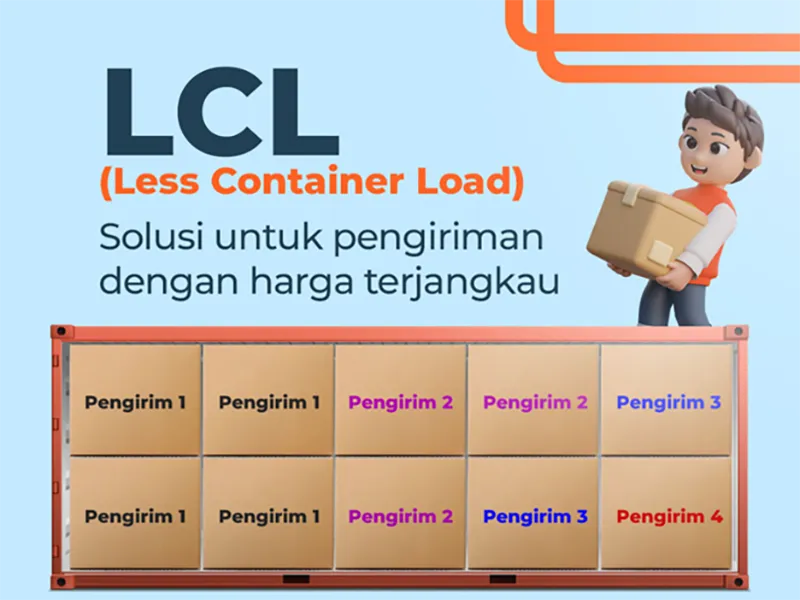
If you are involved in international shipping or logistics, chances are you have come across the term LCL. But what exactly does LCL mean, and how does it affect your business? In this article, we will delve into the world of LCL (Less than Container Load) shipping and explore its benefits, considerations, and industry trends. So, let's dive in and discover how LCL can streamline your shipping operations and optimize your supply chain.
LCL, short for Less than Container Load, refers to a mode of shipping where multiple shippers share a single container. In LCL shipments, the cargo from various shippers is consolidated into a container at a container freight station (CFS) or a designated facility. Unlike Full Container Load (FCL) shipping, where one shipper occupies an entire container, LCL provides a cost-effective solution for smaller shipments that do not require a full container.
The LCL process starts with the consolidation of cargo at the CFS. Once the container is filled with various shipments, it is transported to the port and loaded onto a vessel. At the destination port, the container is unloaded, and the cargo is deconsolidated for each shipper. LCL shipments often require additional handling and documentation, as the cargo needs to be separated and sorted upon arrival. However, LCL enables shippers without enough cargo volume to benefit from the cost efficiencies of containerized shipping.
One of the key advantages of LCL shipping is the cost savings it offers to small and medium-sized businesses. By sharing container space with other shippers, LCL allows you to access the benefits of containerization without bearing the cost of a full container. This cost-sharing model enables you to ship smaller quantities at a fraction of the cost of an FCL shipment.
LCL provides greater flexibility in inventory management. With LCL shipments, you can order and receive smaller quantities more frequently, reducing the need for large inventory storage. This enables businesses to respond quickly to changes in demand and avoid tying up capital in excess stock. Additionally, LCL shipments offer more flexibility in choosing departure and arrival dates, allowing for tighter supply chain control.
LCL shipping provides businesses with access to a global network of ports and destinations. Regardless of the size of your shipment, LCL services are available to and from almost every major port worldwide. This accessibility opens up opportunities for businesses to expand into new markets, reach customers in different regions, and strengthen their international presence.
One consideration when opting for LCL shipping is the transit time and frequency of sailings. While LCL shipments are more frequent and offer greater flexibility, they may take longer to reach their destination compared to FCL shipments. Factor in the lead time required for your cargo to arrive when planning your supply chain to avoid delays or disruptions.
LCL shipments require additional steps in the process, notably the consolidation and deconsolidation of cargo. This means that your cargo will be handled more frequently and by different parties along the way. It is crucial to work with trusted and experienced logistics providers to ensure the proper handling and safe delivery of your shipments.
As your cargo will be sharing container space with other shipments, it is essential to consider packaging and cargo compatibility. Proper packaging and securing of goods help prevent damage and ensure the safety of your cargo during transportation. Clear communication with your logistics provider about your cargo's nature and any specific handling requirements is key to a successful LCL shipment.
To ensure your LCL cargo shipments are handled properly, choose a reliable forwarder. One of Indonesia's recommended domestic forwarders is forwarder.ai. Through its digital platform, your shipment can be as easy as booking an online taxi, and you can monitor your shipment through its real-time tracking feature.
LCL shipping continues to play a crucial role in global trade and logistics. As supply chains become more complex and diverse, the demand for LCL services is expected to grow. Advancements in technology and data analytics are enabling greater visibility and optimization within the LCL sector. This, coupled with sustainability initiatives and green logistics practices, is shaping the future of LCL shipping towards increased efficiency and reduced environmental impact.
In conclusion, LCL shipping offers a cost-effective and flexible solution for businesses seeking to optimize their shipping operations. With its cost-saving advantages, and global accessibility, LCL provides an attractive option for small and medium-sized enterprises. However, careful consideration of factors such as transit time, cargo handling, and packaging is essential in ensuring a smooth and successful LCL shipment. Embrace the world of LCL, and unlock the benefits it holds for your business today!
Nikmati voucher hingga 200K untuk pengiriman pertamamu. Langsung berlaku dan otomatis terpotong saat checkout.
Dapatkan Diskon!